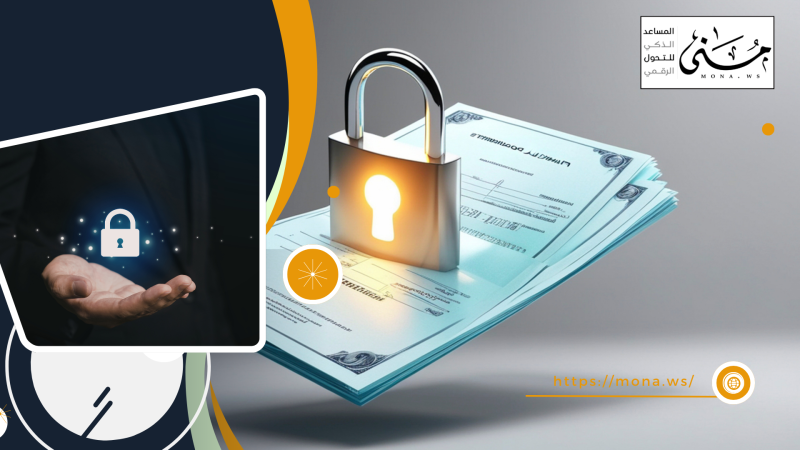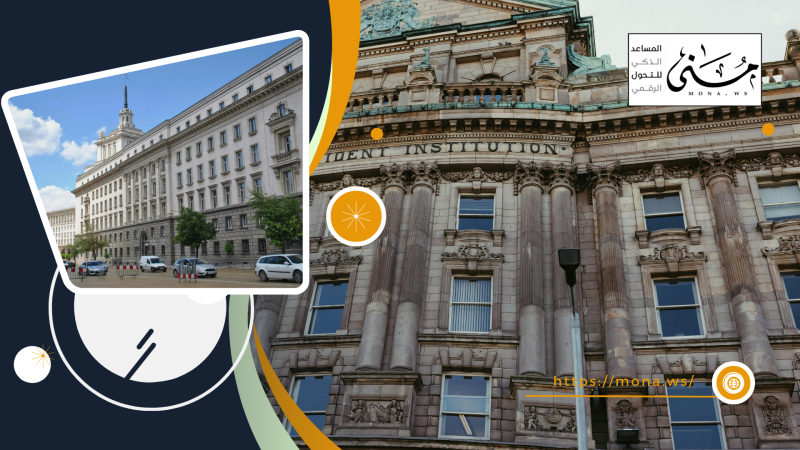Cloud computing security has become a fundamental necessity in the digital age, as businesses and organizations rely on cloud services to store data and operate critical systems.
With the rise of cyber threats, it has become imperative to implement advanced protection strategies that ensure data confidentiality and integrity.
This article aims to review the most prominent risks facing cloud computing, and the most important solutions and technologies used to enhance security in this field.
What is cloud computing security?
With rapid digital transformation, cloud computing security has become an indispensable necessity for protecting data and digital infrastructure. Today's organizations increasingly rely on cloud services to store information and run applications, making them a potential target for cyberattacks.
To ensure the safety and security of this environment, effective strategies must be implemented that reduce risks and enhance protection against potential threats.
Why is cloud computing security vital?
Cloud computing security is an essential component of any modern information system, protecting sensitive data and systems from increasing cyber attacks.
Cloud services are exposed to a range of risks such as hacks, distributed denial of service attacks (DDoS),DDoS), and data theft, making it necessary to implement advanced solutions to ensure security.
In addition, regulations such as:GDPR and HIPAA are strict data protection standards, making cloud computing security even more important in compliance with these laws.
Security challenges facing cloud computing security
Despite the many advantages of cloud services, there are significant challenges facing computing security, the most prominent of which are:
Cyber attacksData stored in the cloud is vulnerable to hacking, requiring advanced security technologies.
Poor identity and privilege management: Failure to properly control data access may result in information being leaked or exposed to unintended breaches.
Compliance with security standardsOrganizations need to ensure that their cloud services comply with local and international laws, which requires advanced security solutions.
Third party risksSometimes, companies rely on cloud service providers, which can be a security vulnerability if there are no strict security measures in place.
Top Strategies for Enhancing Cloud Computing Security
To ensure cloud computing security, a set of advanced security solutions must be adopted, such as:
Data encryptionEncryption helps protect information during storage and transmission, reducing the risk of it being hacked.
Multi-factor authentication (MFA):Adds additional layers of security to ensure that only authorized users can access data.
Using cloud firewallsThese walls provide effective protection against cyber attacks and protect data from external threats.
Security Behavioral AnalysisRelying on artificial intelligence technologies to detect suspicious activity and potential threats helps significantly improve cloud computing security.
Data backupKeeping cloud backups can help recover information in the event of ransomware attacks or technical failures.
Best Systems to Enhance Cloud Computing Security
There are several advanced systems that provide strong protection and enhance cloud computing security, the most prominent of which are:
Microsoft Azure Security CenterProvides integrated solutions for monitoring and managing security risks in cloud environments.
AWS Security Hub: Helps businesses discover and analyze security vulnerabilities to proactively address threats.
DocsuiteThis system provides a comprehensive view of security and helps protect cloud data from attacks. It can also detect risks and address threats after analyzing them.
Palo Alto Prisma CloudIt is one of the most powerful security solutions, as it relies on artificial intelligence to detect and analyze threats.
The future of cloud computing security and modern technologies
As cloud technologies continue to advance, there is an increasing focus on developing new solutions to enhance cloud computing security. Today, organizations are relying on artificial intelligence and machine learning to detect and analyze security threats faster and more efficiently.
Also, techniquesZero Trust Security has become an essential part of modern security strategies, relying on constant verification of users' identities before granting them access.
Computing security is one of the fundamental pillars that ensure the protection of data and applications in the digital age. With the increasing reliance on cloud services, it becomes necessary to invest in advanced security solutions to ensure protection from growing threats. Adopting technologies such as encryption, multi-factor authentication, and cloud firewalls contributes significantly to enhancing security and compliance with regulatory standards..
Cyber attacks and their impact on cloud computing security
Cloud computing environments are facing increasing cyber threats, with attackers targeting corporate data through methods such as phishing, ransomware, and login credential theft.
These attacks can result in the loss of sensitive information or disruption of vital operations, making the need to enhance cloud computing security more urgent than ever.
It is essential for organizations to rely on intrusion detection systems (IDS) and advanced firewalls to protect its cloud infrastructure.
Artificial intelligence is a powerful tool for enhancing cloud computing security, as it can quickly analyze massive amounts of data and identify abnormal patterns that may indicate hacking attempts.
Using machine learning, security systems can predict threats before they occur and take proactive measures to protect data. Intelligent technologies also enable secure management of user identities and prevent unauthorized access attempts.
Compliance with laws and regulations in cloud computing security
Many international laws impose such as:GDPR and HIPAA set strict standards for how data is stored and processed in cloud environments, making compliance with these regulations a critical part of computing security. Organizations need to ensure that cloud service providers adhere to regulatory standards to ensure the protection of user privacy and sensitive data, as well as the use of encryption systems and access control policies to achieve full compliance.
Comparing Cloud Computing Security with Traditional IT Security
With the increasing reliance on cloud services, it has become essential to understand the fundamental differences between cloud computing security and traditional IT security.
The following table shows a comprehensive comparison between the two approaches:
|
The worker |
Cloud Computing Security |
Traditional IT Security |
|
Protection model |
It relies on cloud service providers that use advanced technologies such as encryption and cloud identity management. |
It relies on the company's internal infrastructure, with full responsibility for securing devices and servers. |
|
Data Management |
Data is stored on external servers in distributed data centers, requiring strong encryption and strict access management. |
Data is stored locally within company data centers, which provides greater control but may be more vulnerable to data loss due to natural disasters. |
|
Cost |
It is often more cost-effective, as companies do not need to invest in expensive hardware or specialized technical teams. |
It requires huge investments in hardware, maintenance, and security updates, which increases operational costs. |
|
Operational efficiency |
Greater flexibility, as security can be quickly scaled to meet the organization's needs without requiring major physical modifications. |
Less flexible, as security updates take longer and may require hardware changes or manual updates. |
|
Dealing with threats |
It relies on artificial intelligence and data analysis to proactively detect threats and deal with them in real time. |
It relies on internal security teams and manual monitoring, which can lead to a slower response to cyber attacks. |
Which is better?
The choice between cloud and traditional security depends on the organization's needs and the type of data being handled. If a company requires robust security and high flexibility at a low cost, cloud solutions are the best choice. However, if the data is highly sensitive and requires direct control, traditional security may be the appropriate solution.
Cloud computing security is essential to ensuring business continuity and protecting data from cyber attacks. By adopting advanced technologies such as encryption, multi-factor authentication, and artificial intelligence, organizations can enhance security and effectively combat threats. As technology continues to evolve, investing in cloud security solutions will remain a priority to ensure a secure and sustainable digital environment.
 مع أمن الحوسبة السحابية اضمن الحماية من التهديدات المتنامية
مع أمن الحوسبة السحابية اضمن الحماية من التهديدات المتنامية












Comments
Add New Comment